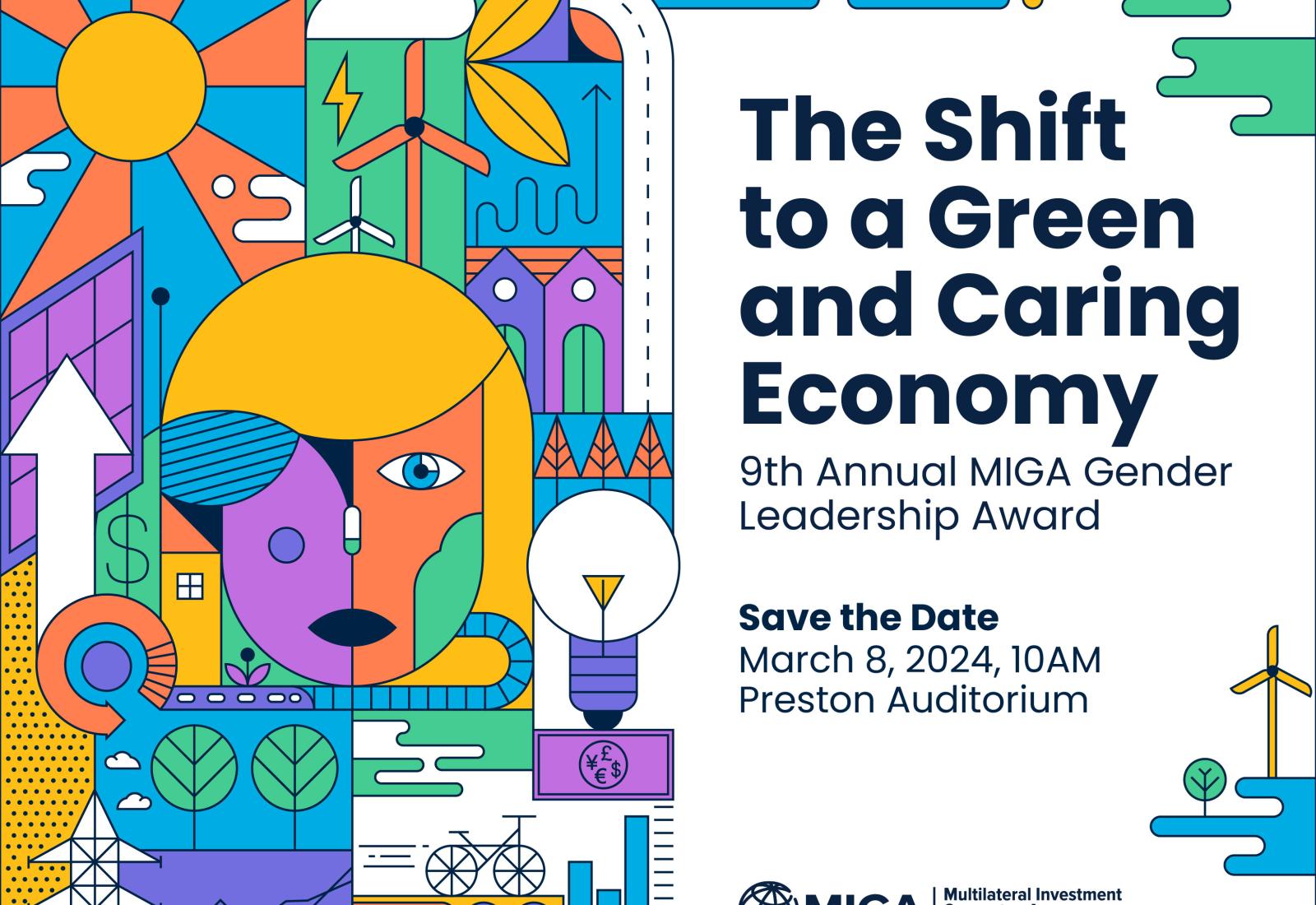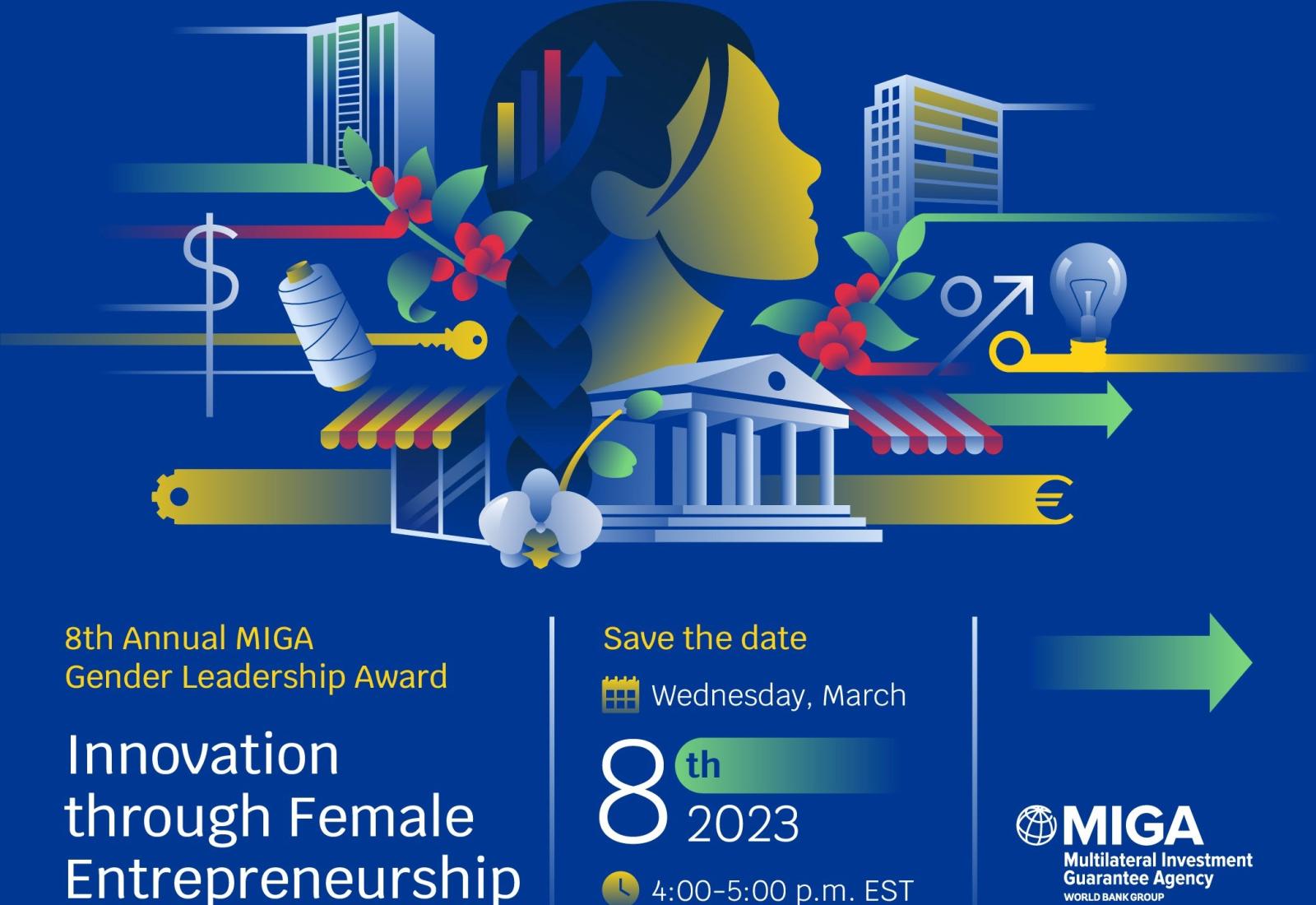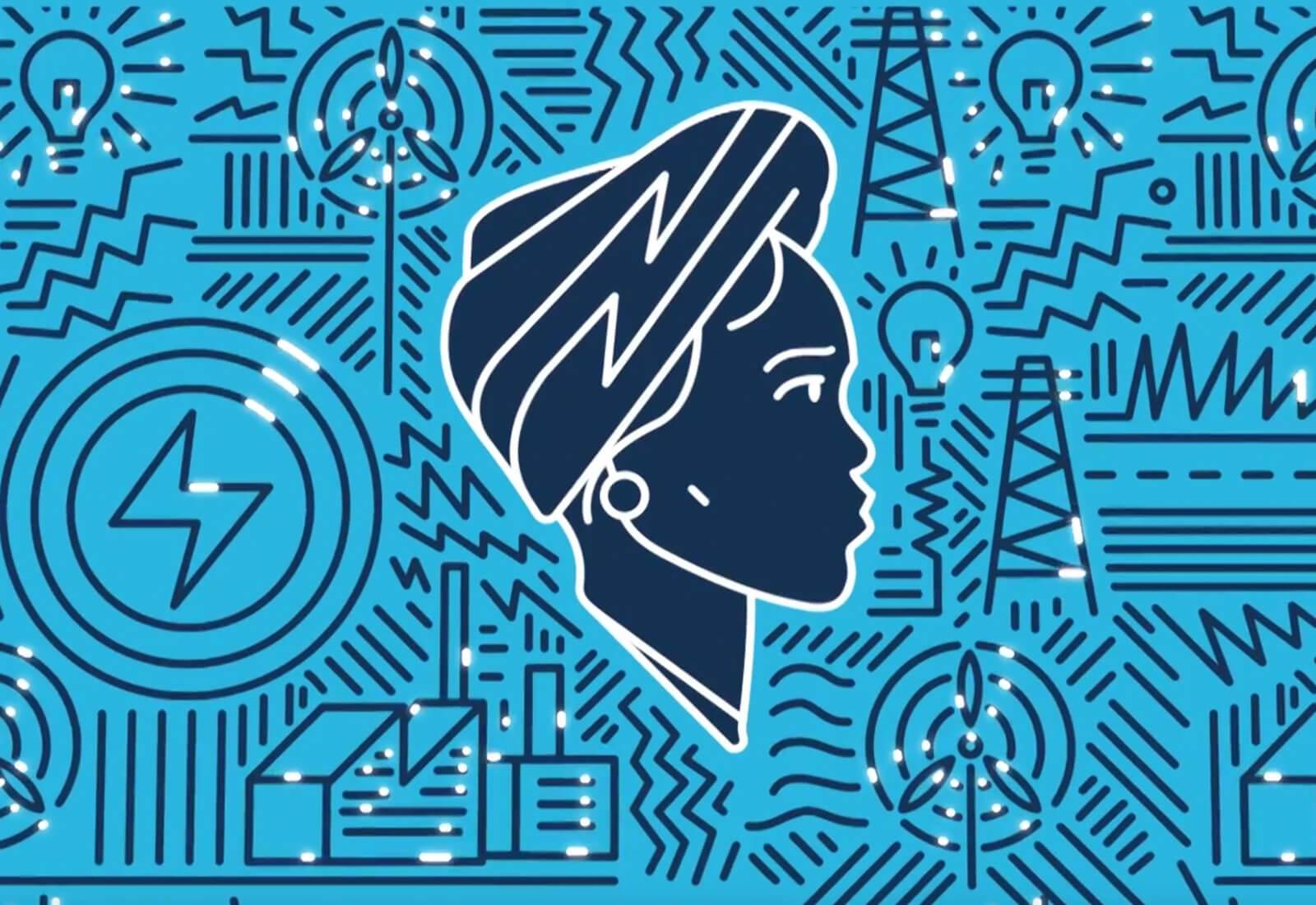

Gender
Overview
Globally, women have not seen their participation in the labor force improve since 1990. And when they do get a seat at the table they aren’t paid equally. We cannot defeat poverty with half the world’s population on the sideline.
Remarks at the 2023 Annual Meetings Plenary
Ajay Banga
President, World Bank Group
Gender equality is a pressing priority. Global crises—climate change, fragility, and pandemics—disproportionately impact women, girls, sexual and gender minorities, and marginalized groups. Moreover, gender-based violence (GBV) remains one of the most common human rights violations worldwide.
Addressing gender gaps and GBV requires sustained and broad-based commitment, supported by knowledge sharing, evidence-based solutions, and targeted finance and de-risking instruments.
The private sector has a leading role to play with its ability to mobilize capital, create jobs, and deliver economic opportunities.
The exclusion of half of a country’s population from full economic activity remains a barrier to growth and higher living standards in too many countries, and MIGA continues to earmark funds in projects it supports for women, a long-underfinanced group.
Read more in the MIGA Annual Report
Hiroshi Matano
Executive Vice President, MIGA
Private Sector Value
Narrowing gaps between women and men can pay big dividends at the country, community, and corporate levels.
Historically, women have been underrepresented in most industry roles, from board-level leadership positions to skilled employees to owners of small and medium enterprises (SMEs). By embracing the business case for engaging with women more intentionally, companies unlock opportunities, develop new markets, and increase profits and innovation.
Narrowing gaps between women and men can also reduce income inequality and improve the variety of goods a country produces and exports, boosting economic growth and private sector business opportunities.
MIGA is helping to drive gender equality through its strong partnership with financial intermediaries: lending institutions can play an outsized role in ensuring that money flows into small, medium and microenterprises led by women or employing women.
Read more in the MIGA Sustainability Report
Junaid Ahmad
Vice President, Operations, MIGA
MIGA is aligned with the World Bank Group’s approach to accelerating gender equality for a sustainable, resilient, and inclusive future.
MIGA's vision is to integrate gender across its operations and support clients in implementing strategic gender actions. Our client engagement focuses on advancing equal access to quality employment, supporting entrepreneurship and economic participation, as well as expanding care, digital inclusion, and ending gender-based violence (GBV).
Gender-based violence (GBV) risk considerations are integrated into MIGA’s environmental and social risk management processes through the application of tools to identify, assess, and monitor GBV risks across the project cycle. MIGA clients are expected to implement measures to prevent GBV and be ready to respond to reports of GBV in workplaces and communities to enable a safe and inclusive environment.
Our Impact
MIGA’s strong focus on delivering development impact requires strategic action to narrow gender gaps across five stakeholder groups where women are often underrepresented or underserved: leaders, employees, entrepreneurs, consumers, and community members.
Since 2021, MIGA has mobilized over $1.3 billion in client lending commitments to women and women-owned businesses. Moreover, adequately measuring and monitoring progress is a crucial continuous effort to assess MIGA's contributions to advancing gender equality against its objectives.
MIGA clients committed to take actions that accelerate gender equality

Bancoldex
Colombia
FINCAP | FY23
AFD (Agencia Financiera de Desarrollo)
Paraguay
FINCAP | FY22
Santander Chile
Chile
FINCAP | FY21
Raiffeisen Bank d.d. Bosna i Hercegovina (RBBH)
Bosnia
FINCAP | FY23
Nakheel
West Bank / Gaza
MAS | FY23
Fondo Mivivienda S.A.(FMV)
Peru
FINCAP | FY23
Orange Telecom
Guinea
INFRA | FY24
Orange Telecom
Liberia
INFRA | FY24
Banco Santander Argentina 2
Argentina
FINCAP | FY23
Santander Argentina
Argentina
FINCAP | FY22
ProCredit Holding
Albania, Georgia, Kosovo, North Macedonia, Moldova, Serbia, Ukraine
FINCAP | FY23
Konexa Solar Power
Nigeria
EEI | FY24
Kasada Hospitality Fund LP
Rwanda
MAS | FY24
Nuru Solar-Hybrid Mini Grids
DRC
EEI | FY24
BNC(National Bank of canada)
Cambodia
FINCAP | FY22
Gender flagged projects as of July 2024
Note project sectors: EEI = Energy and Extractive Industries, FINCAP = Finance and Capital Markets, INFRA = Infrastructure, MAS = Manufacturing, Agribusiness, Services. FY = fiscal year, July-June.
Sector teams at MIGA leverage lessons learned and knowledge acquired to narrow gender gaps and screen for gender-based violence risks. MIGA also continues to build capacity for its staff on diversity, equity, and inclusion.
Our Strategy
MIGA co-developed the World Bank Group Gender Strategy 2024-2030 with the International Finance Corporation (IFC) and the World Bank. The Gender Strategy aims to accelerate gender equality and outlines the support that the World Bank Group (WBG), including MIGA, will provide to clients for a sustainable, resilient, and inclusive future, in alignment with the WBG evolution roadmap.

World Bank Gender Strategy 2024-2030 - Strategic Objectives
The business case for gender equality is overwhelming: correcting gender imbalances can lead to significant economic and business gains in developing countries.
Ethiopis Tafara
Vice President and Chief Risk, Legal and Sustainability Officer and Partnerships
MIGA leverages its unique role in development finance as a provider of political risk insurance and credit enhancement solutions to encourage clients to integrate gender in their work. MIGA's approach comprises two strategic pillars: client engagement and corporate, with partnerships used as a tool for furthering MIGA’s gender work and expanding the knowledge base on gender-related issues.
Client Engagement
MIGA’s client engagement on gender focuses on
1.Risks related to gender-based violence (GBV), and
2.Identifying opportunities to narrow gender gaps.
MIGA screens each proposed project on risks related to GBV in workplaces (sexual harassment) and in project communities (sexual exploitation and abuse).
MIGA also works with its clients to gender flag projects.
Corporate
At the corporate level, MIGA works to increase gender parity and equality as part of its diversity, equity, and inclusion (DEI) efforts. Staff are encouraged to participate in training courses, workshops, and small-group discussions on DEI, offering a platform for learning and transparent and open discussion.
The Gender Flag is a tool for strengthening the emphasis on narrowing gender gaps in MIGA-supported projects. The results-oriented Gender Flag relies on gender analysis to inform client actions and results indicators. The use of the Flag and associated corporate targets, training, and support mechanisms has boosted awareness and capacity to engage MIGA clients on gender equality.
To earn a Gender Flag, a project must take intentional actions to narrow identified gender gaps. The implementation and impact of these actions, outlined in a Gender Action Plan (GAP), is measured as part of the project results framework. Read more in the World Bank Group Gender Strategy 2024–2030 (consultation draft).
Partnerships with external organizations serve an essential role in furthering MIGA’s gender work and expanding the knowledge base on gender-related issues.
MIGA is a founding member of 2X Global—a membership and field-building organization for gender-smart investors, capital providers, and intermediaries working in public and private markets. MIGA is a strategic partner of the Financial Alliance for Women (FAW) — a leading members’ network of financial services companies dedicated to championing the female economy, with the ambition of unlocking the full value of the female economy.
MIGA also closely collaborates with IFC and the World Bank, benefiting from their expertise and leveraging lessons learned and best practices.
Gender Focus in Our Projects
MIGA at work on Gender

Ukraine
Implementing a Gender Training Program in a Bank Subsidiary in Ukraine

Colombia
Building Gender Finance Capacity at Bancóldex and in Colombian Financial Institutions
Video
MIGA Gender Leadership Award: Innovation through Female Entrepreneurship

Peru
Improving Women’s Access to Mortgages
Video
Women Farming in Zambia: Selina's Story

West Bank and Gaza
Addressing Challenges for Women in the Agricultural Workforce
Bosnia and Herzegovina
Strengthening Raiffeisen Bank International (RBI) Gender Finance Capabilities

Paraguay
Developing a Sustainable Gender Program at a Second-Floor Bank
Video
Silverlands Boosting Poultry Farming in Tanzania: Eva’s Story
Gender Leadership Award
Each year, MIGA hosts the Gender Leadership Award (formerly the Gender CEO Award) to recognize a leader who has a proven track record of furthering women’s advancement and gender equality while contributing to the World Bank Group’s twin goals of reducing poverty and boosting shared prosperity.

Past Award Recipients
2023
Claudia María González Arteaga, Chief Financial Officer at Bancóldex (Banco de Desarrollo Empresarial de Colombia).
2022
Lucy Heintz, Partner and Head of Energy Infrastructure at Actis
2021
Audra Low, Chief Executive Officer and Executive Director at Clifford Capital
2020
Aïssata S. Béavogui, Director General at Guinea Alumina Corporation (GAC)
2019
Lara de Mesa, Head of Responsible Banking at Banco Santander Group
2018
Julie Monaco, the Global Head of the Public Sector at Citigroup
2017
Helen Tarnoy, MD at Aldwych Intl
2016
Nourah Mehyar, CEO of Nafith Logistics


































